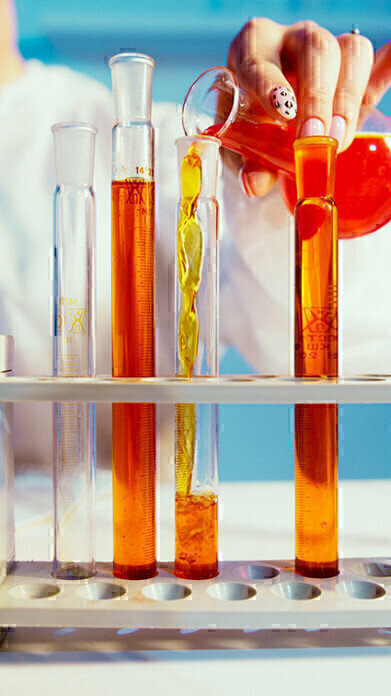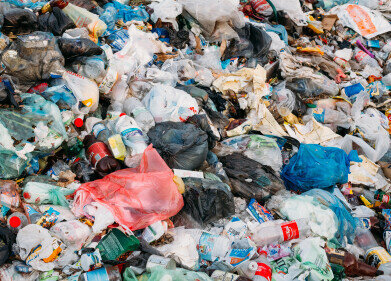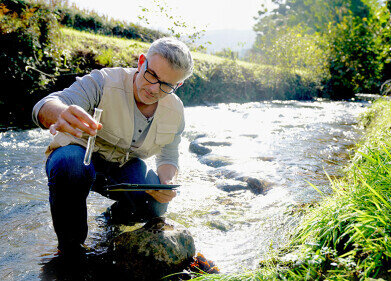Environmental Laboratory
Taking plastic additives out of the equation
Mar 01 2021
In January 2021, the European Chemicals Agency (ECHA) updated its candidate list of substances of very high concern (SVHCs) to people and the environment to include two additional plastic additives. But this does not constitute a ban — these substances will still be used in everyday products, eventually leaching into our soils and waterways. Here biodegradable biopolymer innovator Teysha Technologies, discusses how we can outlaw harmful additives altogether by exploring the potential of tuneable biopolycarbonates.
Since 2016, companies have been legally obliged to apply for permission from the ECHA under the Waste Framework Directive if their products contain SVHCs. The 211-chemical candidate list of SVHCs includes many plastic additives used in products such as inks and toners, cosmetics, pharmaceuticals, plastic consumables and tyres.
For example, one recently added SVHC dibutylbis pentane is commonly used in adhesives and sealants, as well as to enhance certain properties in plastics, like mouldability and strength. Other SVHC examples include viscosity regulators in cosmetics and antioxidants in polymer packaging resins, which delay oxidative degradation if exposed to ultraviolet light. In some product types, additives are necessary for product longevity. While additives are great for making plastics versatile and durable, their toxicity has yet to be fully appreciated.
Why are additives harmful?
Many plastics emit potentially toxic substances into the air, water and soil in at every stage of their lifecycle. Examples of additives from plastics recently found in soil include phthalates (plasticisers used to make PVC flexible), brominated flame retardants and BPA. These substances are present on the ECHA’s candidate list, and while some studies concluded that concentrations found in the environment were lower than the legal guidelines, often they greatly exceeded them.
Data from two 2018 studies suggest that toxic additives adversely affect reproduction in many animal models. For instance, laboratory studies saw plastic additives disrupting hormone secretion in certain species of marine biota. What’s more, studies in pigs found that egg cell maturation was compromised after exposure to toxins such as BPA. The main conclusions here are that even in low concentrations, additives used in refining plastics can still cause harm.
Unfortunately, expanding SVHC legislation does not fully solve the issue. In cases where permission has been granted by the ECHA, companies will be authorised to use toxic chemicals in their plastics if they can provide safety data sheets to their customers and consumers. These must recommend appropriate disposal measures to adequately control the risk of exposure to humans and the environment.
This is all very well, but a recommendation does not ensure that consumers comply. As a result, contaminants will continue to build up, threaten our ecosystems and affect the food chain. Eco-friendly alternatives must be sought out before it is too late.
The biopolymer revolution
“Polymer additives play a crucial role in many consumable products like cosmetics and pharmaceuticals,” explained Matthew Stone, managing director of Teysha Technologies. “Despite the overwhelming evidence of their negative impact on the environment, manufacturers are still being permitted to use them.
“To counter this, Teysha has been leading research into the development of biopolymers that don’t need refining with toxic additives,” continued Stone. “An additional benefit of these materials is that they can biodegrade naturally without the need for resource-intensive industrial catalysts. The result of our research is AggiePol®, a versatile biopolycarbonate made from natural-product monomers and various co-monomers that modify the properties of the final polymer. With our platform, harmful additives can be outlawed completely, so we can start to move away from environmentally damaging consumables.”
Though a step in the right direction, updated legislation that still enables businesses to use SVHCs in their products is not enough — we must look at stopping their use altogether. As the ECHA expands its candidate list, companies can look at swapping to biodegradable, sustainable polycarbonates as an alternative to toxic additives. Once the transition is made, companies will find the time spent applying for permission to use SVHCs can be better used for building profits — as well as creating a healthier, greener planet.
Digital Edition
IET 34.2 March 2024
April 2024
Gas Detection - Biogas batch fermentation system for laboratory use with automatic gas analysis in real time Water/Wastewater - Upcycling sensors for sustainable nature management - Prist...
View all digital editions
Events
Apr 30 2024 Melbourne, Australia
Apr 30 2024 Birmingham, UK
May 03 2024 Seoul, South Korea
May 05 2024 Seville, Spain
May 06 2024 Minneapolis, MN, USA


















